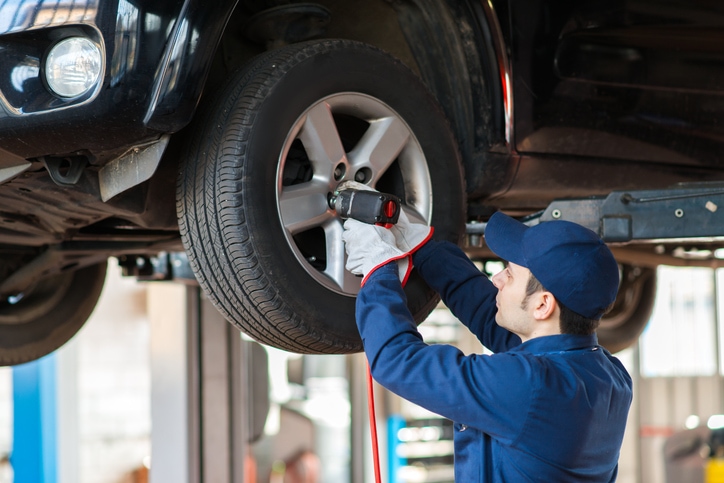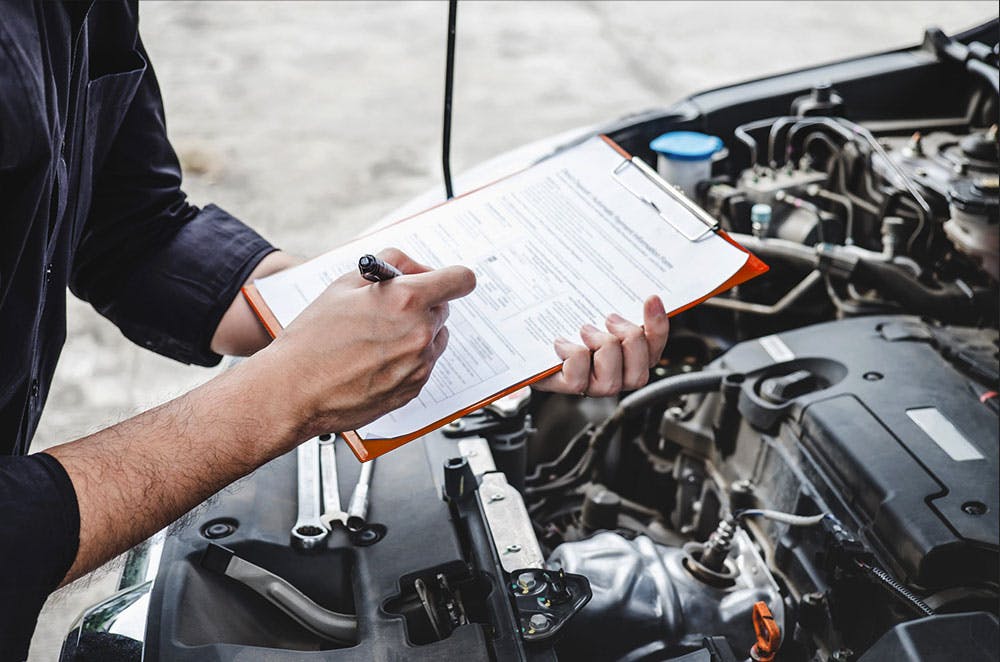All Categories
Featured
Your lorry depends on different fluids to maintain its elements running efficiently and efficiently. Ignoring these liquids can result in reduced performance, possible safety threats, and expensive repair work. Comprehending the function of each liquid and staying aggressive in upkeep ensures your car operates at its finest. This article explores the crucial lorry fluids and their value to your car's wellness.
![]()
Why It Issues: Without proper lubrication, engine parts can grind against each other, resulting in substantial damages. Upkeep Tips: Check your oil level regular monthly using the dipstick and top off if required. Change the oil and filter according to your automobile's solution schedule, generally every 3,000 to 7,500 miles depending upon the oil type and driving conditions. 2. Coolant: Regulating Engine Temperature. Coolant, also called antifreeze, aids preserve your engine's temperature level within the optimal variety. It stops overheating throughout hot weather and cold during cool conditions.
Why It Issues: Degraded or inadequate coolant can result in engine getting too hot, which can create extreme damage. Upkeep Tips: Examine the coolant tank frequently and seek leaks or staining. Flush and refill coolant as advised, typically every two to 5 years. 3. Brake Fluid: Reliable Stopping Power. Brake fluid is essential for your lorry's stopping system, transferring the force from your foot on the brake pedal to the brakes themselves. With time, brake liquid can soak up moisture, which minimizes its efficiency.
Why It Matters: An endangered stopping system can drastically influence your security. Upkeep Tips: Evaluate the brake liquid storage tank and guarantee the level remains within this array. Modification the liquid every 2 to 3 years or as needed. 4. Transmission Liquid: Smooth Equipment Shifts. Transmission fluid lubes the transmission components and guarantees seamless equipment adjustments. It also prevents overheating by cooling the system.
![]()
Why It Matters: Disregarded transmission liquid can lead to gear slippage, getting too hot, or perhaps complete transmission failure. Maintenance Tips: Monitor the liquid's degree and problem on a regular basis. Replace it according to the manufacturer's recommendations, usually every 30,000 to 60,000 miles. 5. Power Guiding Liquid: Uncomplicated Maneuvering. Power guiding fluid helps in precise and smooth steering. Reduced or contaminated fluid can make guiding extra tough, placing stress on the system.
Why It Matters: Poor guiding responsiveness can compromise your control over the automobile. Upkeep Tips: Frequently inspect the fluid degree and color, and leading it off as needed. Be alert to leakages or unusual steering noises. 6. Windshield Washing Machine Fluid: Clear Presence. While it doesn't effect efficiency, windscreen washing machine liquid is vital for maintaining exposure, specifically in negative problems.
![]()
Why It Issues: A tidy windshield guarantees you can see clearly, minimizing the threat of crashes. Upkeep Tips: Re-fill the washer liquid storage tank frequently and utilize a formula suited to your climate to stop freezing or streaking. Why Normal Liquid Maintenance is Necessary. Optimal Performance: Proper fluid degrees and high quality guarantee all systems run smoothly. Safety And Security Assurance: Brake and power guiding liquids directly affect your capability to manage the lorry. Cost Cost savings: Preventative upkeep avoids pricey repair services by catching possible issues early. Long life: Fluids in good problem help extend the life of critical parts, including the engine and transmission. Quick Tips for Effective Fluid Maintenance. Comply with the Handbook: Refer to your car's proprietor guidebook for particular upkeep intervals. Look Out for Leaks: Pools under your vehicle can indicate liquid leaks that need instant interest. Use Recommended Products: Stay with fluids suggested by your car supplier to avoid compatibility problems. Pay Focus to Warning Signs: Dashboard notifies or unusual efficiency can signal fluid troubles. Conclusion. Keeping your car's liquids is one of the most basic ways to keep it running successfully and securely. Whether it's engine oil, coolant, or brake fluid, each plays a crucial function in your auto's overall health.

- Engine Oil: The Lifeline of Your Engine. Engine oil plays an essential function in oiling the engine's moving parts, minimizing friction, and shielding against wear and getting too hot. In time, oil comes to be or degrades polluted with debris, which can endanger its performance.
Why It Issues: Without proper lubrication, engine parts can grind against each other, resulting in substantial damages. Upkeep Tips: Check your oil level regular monthly using the dipstick and top off if required. Change the oil and filter according to your automobile's solution schedule, generally every 3,000 to 7,500 miles depending upon the oil type and driving conditions. 2. Coolant: Regulating Engine Temperature. Coolant, also called antifreeze, aids preserve your engine's temperature level within the optimal variety. It stops overheating throughout hot weather and cold during cool conditions.
Why It Issues: Degraded or inadequate coolant can result in engine getting too hot, which can create extreme damage. Upkeep Tips: Examine the coolant tank frequently and seek leaks or staining. Flush and refill coolant as advised, typically every two to 5 years. 3. Brake Fluid: Reliable Stopping Power. Brake fluid is essential for your lorry's stopping system, transferring the force from your foot on the brake pedal to the brakes themselves. With time, brake liquid can soak up moisture, which minimizes its efficiency.
Why It Matters: An endangered stopping system can drastically influence your security. Upkeep Tips: Evaluate the brake liquid storage tank and guarantee the level remains within this array. Modification the liquid every 2 to 3 years or as needed. 4. Transmission Liquid: Smooth Equipment Shifts. Transmission fluid lubes the transmission components and guarantees seamless equipment adjustments. It also prevents overheating by cooling the system.

Why It Matters: Disregarded transmission liquid can lead to gear slippage, getting too hot, or perhaps complete transmission failure. Maintenance Tips: Monitor the liquid's degree and problem on a regular basis. Replace it according to the manufacturer's recommendations, usually every 30,000 to 60,000 miles. 5. Power Guiding Liquid: Uncomplicated Maneuvering. Power guiding fluid helps in precise and smooth steering. Reduced or contaminated fluid can make guiding extra tough, placing stress on the system.
Why It Matters: Poor guiding responsiveness can compromise your control over the automobile. Upkeep Tips: Frequently inspect the fluid degree and color, and leading it off as needed. Be alert to leakages or unusual steering noises. 6. Windshield Washing Machine Fluid: Clear Presence. While it doesn't effect efficiency, windscreen washing machine liquid is vital for maintaining exposure, specifically in negative problems.

Why It Issues: A tidy windshield guarantees you can see clearly, minimizing the threat of crashes. Upkeep Tips: Re-fill the washer liquid storage tank frequently and utilize a formula suited to your climate to stop freezing or streaking. Why Normal Liquid Maintenance is Necessary. Optimal Performance: Proper fluid degrees and high quality guarantee all systems run smoothly. Safety And Security Assurance: Brake and power guiding liquids directly affect your capability to manage the lorry. Cost Cost savings: Preventative upkeep avoids pricey repair services by catching possible issues early. Long life: Fluids in good problem help extend the life of critical parts, including the engine and transmission. Quick Tips for Effective Fluid Maintenance. Comply with the Handbook: Refer to your car's proprietor guidebook for particular upkeep intervals. Look Out for Leaks: Pools under your vehicle can indicate liquid leaks that need instant interest. Use Recommended Products: Stay with fluids suggested by your car supplier to avoid compatibility problems. Pay Focus to Warning Signs: Dashboard notifies or unusual efficiency can signal fluid troubles. Conclusion. Keeping your car's liquids is one of the most basic ways to keep it running successfully and securely. Whether it's engine oil, coolant, or brake fluid, each plays a crucial function in your auto's overall health.
Latest Posts
Boost Your Building with Overhead Door Systems
Published May 24, 25
1 min read
The Benefits of Consistent Auto Maintenance at Montclare Auto Repair Saves You Money
Published May 24, 25
1 min read
Improve Your Building with Overhead Door Equipment
Published May 21, 25
1 min read